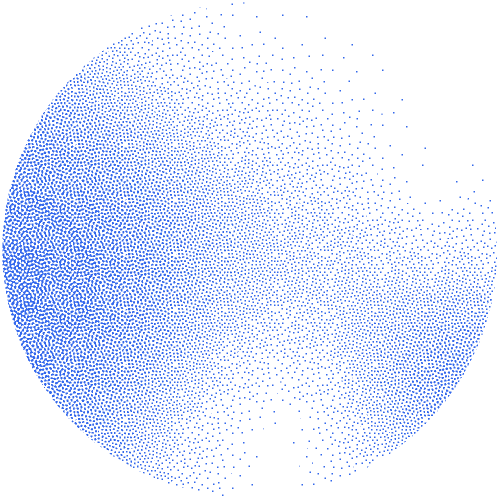ATGCCGGAATTGGCACATAACAAGTACTGCCTCGGTCCTTAAGCTGTATTGCACCATATGACGGATGCCGGAATTGGCACATAACAAGTAC
TGCCTCGGTCCTTAAGCTGTATTGCACCATATGACGGATGCCGGAATTGGCACATAACAACGGTCCTTAAGCTGTATTGCACCATATGACG
GATGCCGGAATTGGCACATAACAAGTACTGCCTCGGTCCTTAAGCTGTATTTCGGTCCTTAAGCTGTATTCCTTAACAACGGTCCTTAAGG
ATGCCGGAATTGGCACATAACAAGTACTGCCTCGGTCCTTAAGCTGTATTGCACCATATGACGGATGCCGGAATTGGCACATAACAAGTAC
TGCCTCGGTCCTTAAGCTGTATTGCACCATATGACGGATGCCGGAATTGGCACATAACAACGGTCCTTAAGCTGTATTGCACCATATGACG
GATGCCGGAATTGGCACATAACAAGTACTGCCTCGGTCCTTAAGCTGTATTTCGGTCCTTAAGCTGTATTCCTTAACAACGGTCCTTAAGG


Advanced Statistics: Statistical Modeling



10 August 2018



For-profit: 1200 CHF

No future instance of this course is planned yet
The course is now closed as it is full with a long waiting list.
Overview
While the statistical models and tools presented in an introductory statistics course (such as linear regression) can be used to answer a wide range of questions in life sciences, many types of data can not be analyzed using these tools.
During this course, we will discuss statistical models and techniques beyond classical linear modelling. Topics include advanced linear models, non-linear models, mixed models, generalized linear models, longitudinal data analysis and GAMs. The emphasis will be put on concrete applications in biology, enabling the participants to analyze data consisting for example of counts or presence/absence of a feature.
Audience
This course is intended for life scientists who already use the R programming language and have some basic knowledge of statistics (including statistical tests, correlation and linear models).
Learning objectives
At the end of this course, participants will be able to:
- identify the appropriate model to analyze a dataset;
- fit the chosen model using R;
- assess the fit of the model, as well as its limitations
Brief course program
- Monday: advanced linear models, non-linear models
- Tuesday: generalized linear models
- Wednesday: linear mixed models, longitudinal data analysis
- Thursday: longitudinal data analysis and GAMs
Prerequisites
Knowledge / competencies:
The course is intended for people already familiar with basic statistics and R. Participants must be comfortable with topics such as hypothesis testing, correlation and linear models and must have a prior knowledge of the "R" language and environment for statistical computing and graphics. Participants who have already followed the SIB course "introduction to statistics for biologists" and have used its content in practice should fit this prerequisite.
Technical
Participants must bring a laptop with at least 4 Gb of RAM and the "R" and "RStudio" software installed. More information about the packages needed will be provided before the course.
Application
The course is now closed as it is full with a long waiting list.
The registration fees are 240 CHF for academics and 1200 CHF for for-profit companies. This includes course content material, coffee breaks, and a social dinner on Tuesday 21 August.
Deadline for registration and free-of-charge cancellation is set to 10 August 2018. Cancellation after this date will not be reimbursed. Please note that participation to SIB courses is subject to this and other general conditions, available here.
You will be informed by email of your registration confirmation. Upon reception of the confirmation email, participants will be asked to confirm attendance by paying the fees within 5 days.
Venue and time
University of Lausanne
The course will start at 9:00 and end around 17:00. Precise information will be provided to the participants on due time.
Additional information
Coordination: Diana Marek
You are welcome to register to the SIB courses mailing-list to be informed of all future courses and workshops, as well as all important deadlines using the form here.
For more information, please contact training@sib.swiss.